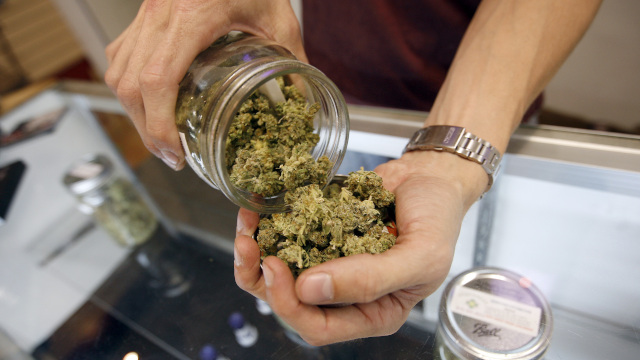
In a dramatic change in drug policy, the Justice Department said Thursday that it won't sue to stop the states of Colorado and Washington from allowing recreational marijuana use as it issued a sweeping national policy statement that outlines its top priorities for pot enforcement.
The action, welcomed by supporters of legalization, could set the stage for more states to legalize marijuana. Alaska is scheduled to vote on legalizing recreational use of marijuana next year, and a few other states plan similar votes in 2016.
But marijuana distributors in California aren't impressed. U.S. Attorneys here have pushed to shut down pot dispensaries -- particularly facilities near schools - since October 2011. "This memo does nothing for all of the people who have been arrested and prosecuted and imprisoned over the last five years of the Obama Administration, who were in fact in compliance with state laws," said Stephen DeAngelo, who runs Harborside Health Center in East Oakland.
Harborside is county's largest licensed marijuana dispensary, but the U.S. Attorney for Northern California is fighting to shut it down. Thursday's memo makes it clear it does not apply to past or current cases, so DeAngelo doesn't expect his situation to change.
Under the new policy, the top investigative priorities range from preventing sales revenue from going to criminal enterprises, gangs and cartels, to preventing the diversion of marijuana outside of states where it is legal under state law.